- Ecuador
- Galapagos
About Program
600 miles off the coast of Ecuador, the Galápagos have sea lions, iguanas, and tortoises galore waiting to welcome you.
Imagine stepping foot onto this mysterious dark land knowing it’s an estimated 3.5 million years old (yes, million). Witness the famous land iguanas and giant tortoises as you study the evolution of these unique species. Visit indigenous and traditional Andean communities to better understand the relationship between humans and their environment. Dive into the Pacific to get close to the marine life you will be learning about.
This environmental haven awaits you when you study abroad in the Galápagos Islands.
Video and Photos
Diversity & Inclusion 💙
BIPOC Support
LGBTQIA+ Support
Studying abroad as part of the LGBTQIA+ community can present unique opportunities and challenges in exploring a new culture, so we have compiled resources to help prepare you and support you along the way.
Neurodivergent Support
We have not only compiled resources on mental health and self-care to help prepare you and support you along the way, but we also have a dedicated Student Affairs staff that are available for you to contact from the United States and once in your host country.
Accessibility Support
Impact 🌎
Sustainability
- Moving toward more sustainable Headquarters and Centers abroad
- Producing printed materials on 100% recycled paper with soy-based ink and in fewer quantities
- Hosting events and conferences in LEED-certified buildings
- Purchasing carbon offsets for staff air travel
- The formation of the IES Abroad Sustainability Team—a dedicated group of volunteers responsible for implementing sustainable practices across our organization. The team comprises of members across our Centers, departments, teams. It is truly a global effort, and we are better for it.
Program Highlights
- See the world's most beautiful and biologically diverse island locations – a popular visiting spot for many famous scientists.
- Balance studies with extracurricular activities and cultural events such as SCUBA dives.
- Explore Ecuador and its surrounding areas through IES Abroad field trips. Past trips include: the Amazon Rainforest, Maquipucuna Cloud Forest, and Mitad del Mundo.
- You’ll have an individual IES Abroad Program Advisor to guide you before your study abroad adventure. From visa requirements to travel details, they are your #1 resource for preparing to study abroad.
- From health insurance included in your program fees, to a worldwide crisis management team, we work 24/7 to keep you safe, healthy, and happy abroad.
Popular Programs
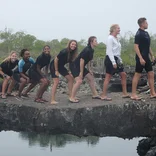
This direct enrollment program is organized through the Galápagos Academic Institute for the Arts and Sciences (GAIAS), a remote campus of the Universidad San Francisco de Quito (USFQ) located on the island of San Cristobal. Before you head to the Galápagos, you'll spend a month in Quito, where you participate in an orientation, classes at USFQ, and field study excursions. The remaining months are spent on San Cristobal in the Galápagos Islands.
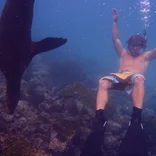
On this three-week IES Abroad program in January, you'll study Marine Ecology and Environmental Studies at the Galápagos Academic Institute for the Arts and Sciences (GAIAS) on San Cristóbal island, a remote campus of the Universidad San Francisco de Quito established specifically to further conservation and sustainable development efforts. Your learning will also extend beyond the classroom. Imagine exploring flora and fauna, visiting an extinct volcano, and snorkeling...all for class.













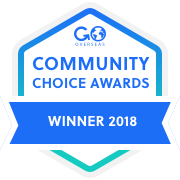
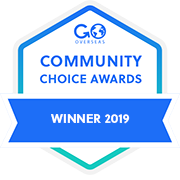
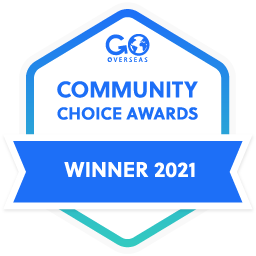




The classes are taught in English. But you live with host families, which is a great way to learn Spanish.